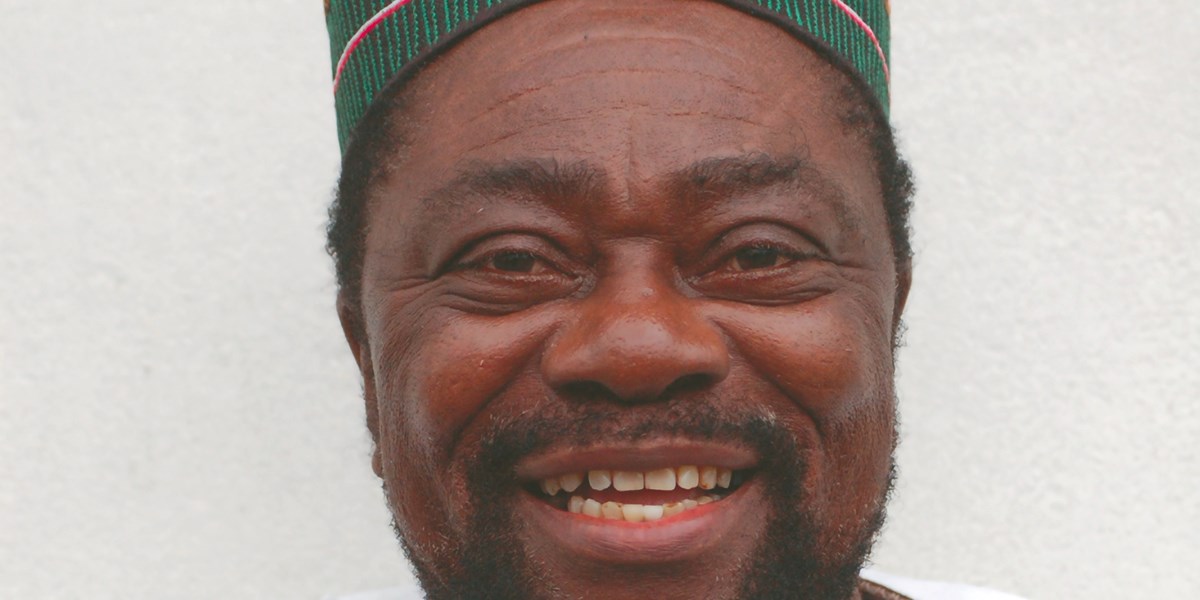Thursday, January 30, 2025
Obituary: Teddy Osei (1937-2025)
Osibisa founding member and singer Teddy Osei has passed away

Long before the world music ‘boom’ of the late 1980s brought African rhythms into the Western rock mainstream, there was Teddy Osei and Osibisa.
Taking their name from the Fante word ‘osibisaba’, a style of highlife from south-west Ghana, the band’s “criss-cross rhythms that explode with happiness” introduced a predominantly white rock audience to the irrepressible groove of West African music at the same time as Carlos Santana and his band were thrilling an unsuspecting Woodstock audience with their Latino rhythms.
Born in 1937 in Kumasi, the capital of the Ashanti region of Ghana, and named after a legendary 17th-century Ashanti king, Osei’s parents were Roman Catholics and his father played the euphonium in church while he served as an altar boy.
Away from the straight-laced Victorian hymns he was forced to sing, he was rather more enthused by the traditional music and Ashanti folk songs he heard all around him and later by his discovery of American jazz. After teaching himself to play the saxophone by listening to Duke Ellington and Count Basie records, by his late teens he was essaying a pragmatic fusion of highlife with jazz and other Western styles in a band called the Comets.
He arrived in the UK in 1962 and spent a year washing dishes in the kitchen of a Park Lane hotel. That was until he received a scholarship to study at the Royal Academy of Music from the Ghanaian government of Kwame Nkrumah
Disaster struck when Nkrumah was deposed in a coup d'état in 1966 and Osei’s funding went with it. To make ends meet he joined a soul band touring Europe and North Africa playing James Brown covers before returning to Britain where in 1969 he formed Osibisa with his brother Mac Tontoh on trumpet, Ghanaian drummer Sol Amarfio and further musicians from Nigeria and the Caribbean.
Osibisa’s self-titled debut album was released in 1971 and its driving Afro-rock fusion was both a revelation and a sensation. Produced by Tony Visconti, famous for his work with David Bowie and T Rex, the album boasted a phantasmagorical cover by Roger Dean, whose artwork also graced albums by prog-rock bands such as Yes.
With Osei playing sax, flute and talking drums, and taking most of the lead vocals, the record made #11 in the UK album charts. The follow-up Woyaya gave Osibisa another top 20 entry. Further albums followed, including 1975’s Welcome Home which included the hit single ‘Sunshine Day,’ although to the disappointment of the band’s original fans, by the 1980s the sound had drifted from its Afro roots towards an R&B/disco style.
By the 1990s Osei was the only remaining member of the original line-up, adding younger, mostly Ghanaian recruits to keep the Osibisa flame burning, although his brother Mac Tontoh made a reappearance on the 2009 album Osee Yee.
“We didn’t think of ourselves as pioneers but as a new sound”, Osei told Songlines in 2010 (#65) when Osibisa were featured on the cover. “We took sounds from everywhere and fused them into something exciting and fresh. We brought people together and made them happy. That is Osibisa’s legacy.”

